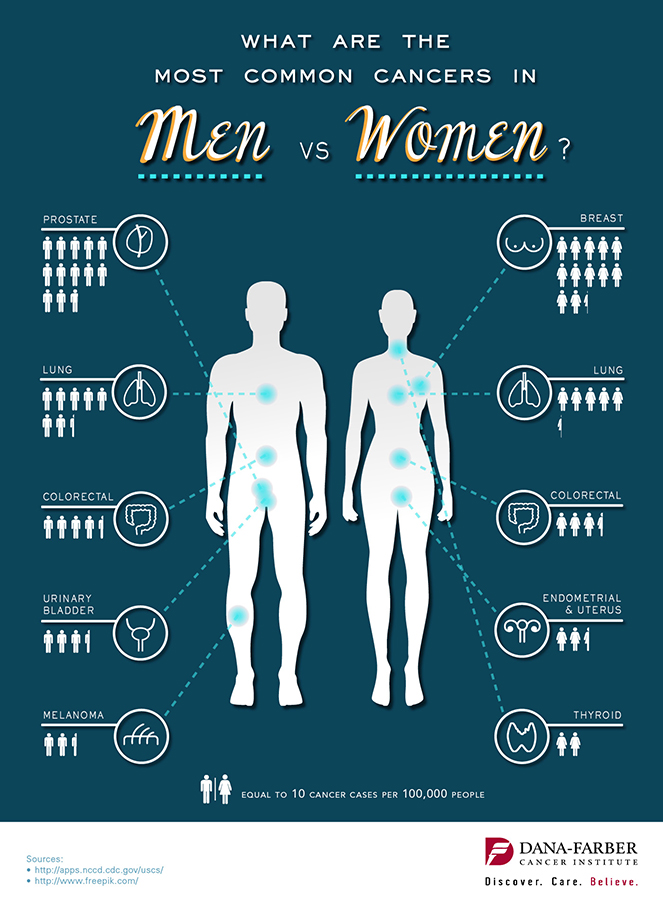Sharing is caring!
Common Cancers In Men
More men suffer and die from chronic illnesses than women. For instance, men are 1.3 times more likely to have cancer and two times more likely to die from liver disease.
“The evidence is clear and the risk is high; men need to be more attentive to their health,” says Dr. David Samadi, Chairman of Urology and Chief of Robotic Surgery at Lenox Hill Hospital.
According to the U.S. Centers for Disease Control and Prevention, when it comes to cancers in men in America, the five most common types are: prostate, lung, colorectal, bladder, and melanoma.
The risk factors for cancer are numerous and vary. According to World Health Organization (WHO), tobacco and alcohol consumption, poor nutrition, genetics, UV rays from the sun, and a lack of physical activity have all become notable risk factors that lead to cancer.
Recently, frequent exercise has been shown to be one of the most beneficial methods of reducing risk. A new study led by Dr. Susan Lakoski and her research team at the University of Vermont, Burlington found that men who kept a high level of fitness in their midlife may have a lower overall risk of death from certain types of cancers as they age. The study was published in the journal JAMA Oncology.
Some cancers, such as prostate, show no early signs and no routine tests are required. Others come with symptoms like unexplained weight loss, swollen lymph, change in testicle size and constant fatigue. Blood in urine and the stool are also major warning signs that should never be ignored.
Meanwhile, men who have had testicular cancer may have an increased risk for prostate cancer, according to a new study at the University of Maryland School of Medicine. Men who previously had testicular cancer were 5.8 percent more likely to get intermediate or high-risk prostate cancer, compared to 1.1 percent of men who did not have testicular cancer. Overall, men with a history of testicular cancer had a 4.7 times higher risk for prostate cancer and a 5.2 times higher risk for intermediate or high-risk prostate cancer.
“Never ignore it, even if it’s a one-time occurrence. It could be a precancerous polyp leaking blood, and bleeding is the only early warning you’ll receive, says Greg Enders, M.D., Ph.D., a gastroenterologist at Fox Chase Cancer Center.”

To arm yourself with more preventative tips, read more here.
- Tags: colitis, colon cancer, cough, hemorrhoids, lung cancer, lymphoma, men's health, prostate, ucla

